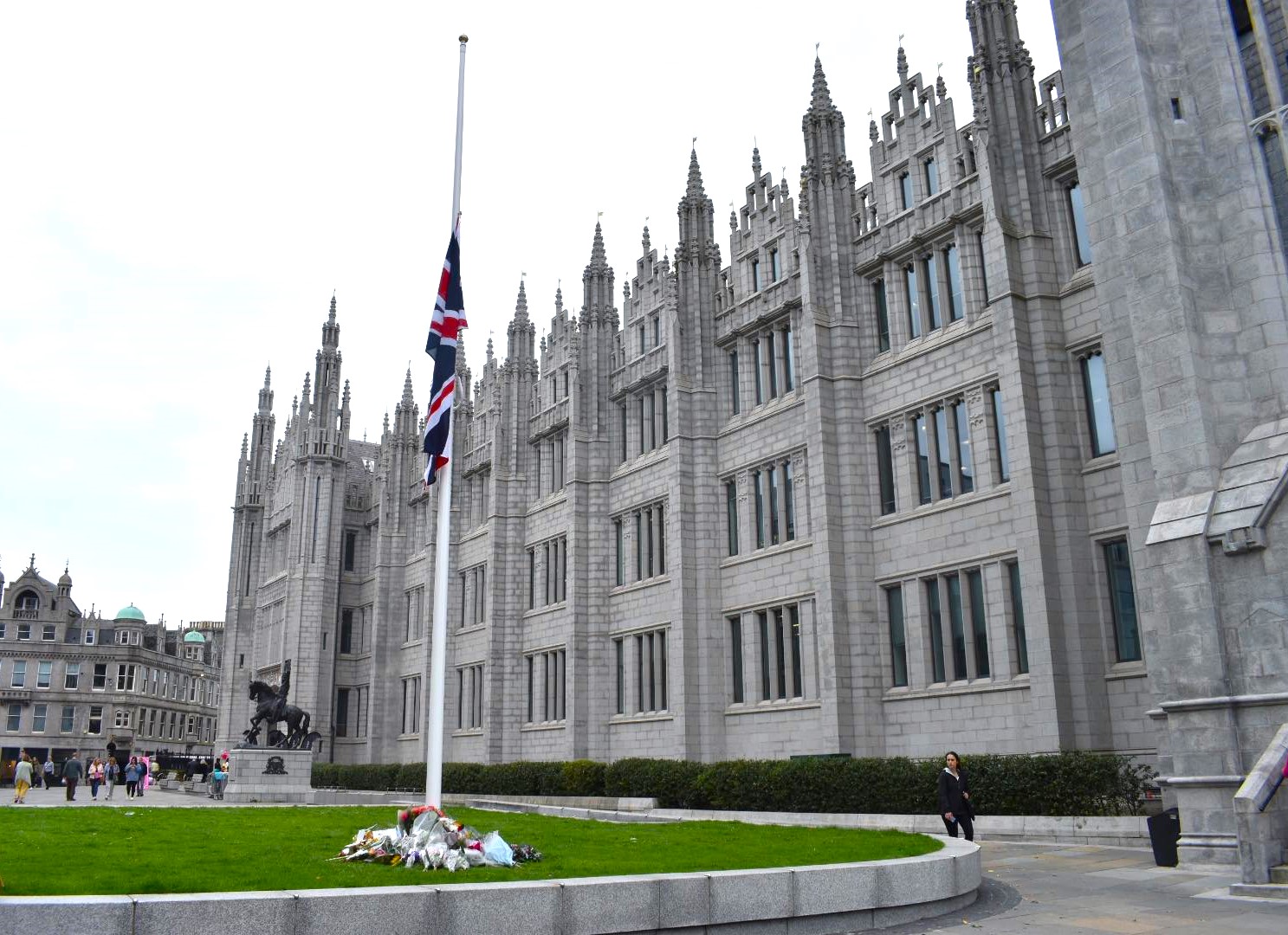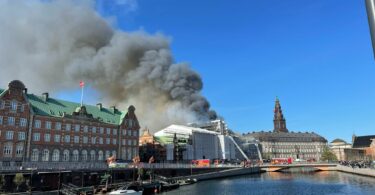Aberdeen, Scotland, UK – In the same week that the UK is facing a governmental shake-up with the third unelected prime minister in a row coming to power, the death of the head of the monarchy and figurehead of the four nations has only magnified the current discord.
In Aberdeen, 50 miles away from Balmoral Castle where Queen Elizabeth II died Thursday, reactions to the news are mixed.
In the city on the northeast coast of Scotland, there certainly haven’t been any processions or tributes on par with London or other southern cities.
Indeed, some Scots, especially among the younger generations, are shedding no tears and instead welcoming the sudden change. It’s the result of a complex history between Scotland and the Crown and isn’t unexpected.
But the image of people celebrating after the death of the Queen can be jarring, especially to those unaware of the cultural connotations.

On the other hand, there have been bouquets of flowers left at the half-mast flag in the center of the city.
Aberdeen, like the rest of the United Kingdom, will follow the mourning period and the other protocols of “Operation Unicorn,” the official plan that laid out exactly what would happen if the queen were to die in Scotland.
Over the next 10 to 12 days, everything from radio entertainment to sports games and travel will see significant impact.
But it is important to recognize that the reaction of the city and the country at large should not be generalized.
Even within Scotland, there are fierce debates and opposing sides on the existence of the monarchy. You will even see this contentious issue materialized in the polar opposite views of the country’s two biggest football teams and their fans. Either view could be justified and reactions on both sides are valid, which adds to the “grey-area” of it all.
Some reactions could be attributed to shock. Every citizen knew this day would come eventually, but it will take some time to adjust to the sudden absence of the woman who was queen for seven decades.
The media referring to King Charles and Queen Consort Camilla and Prime Minister Liz Truss is a bizarre switch up when only four days ago there was Queen Elizabeth and Prime Minister Boris Johnson. Compounded with the current energy crisis and the impending winter, it is a time of political and economical uncertainty for the majority of the UK.
Regardless of the spectrum of reactions, one thing is abundantly clear to everyone. We are in a state of flux.
Whether the UK can hold onto the unity it had under the reign of Elizabeth II or if this will be a catalyst to widen the existing cracks is yet to be seen.
But as King Charles III takes the throne, in the first succession seen here in more than 70 years, we will be sure to find out.
Owen Ferguson is an Associate Editor with Youth Journalism International.



